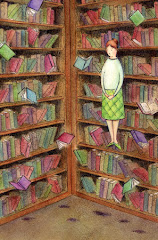 My favorite part of this learning project was also what caused me the most pain and frustration in the beginning: setting up the blog and learning the finer points of Blogspot--especially figuring out how to download pictures, create hyperlinks, and embed videos. I came so close in the beginning to just deleting this blog.
My favorite part of this learning project was also what caused me the most pain and frustration in the beginning: setting up the blog and learning the finer points of Blogspot--especially figuring out how to download pictures, create hyperlinks, and embed videos. I came so close in the beginning to just deleting this blog.Before this I had intended to open a Flickr account (I did) and explore digital photography. I now feel much more confident about my ability to learn to do so. I am also much more aware about the incredible interactive sites out there and more open-minded about them. They really do have the potential to transform our lives and how we interact with each other. However, I am also more concerned about the potential for abuse regarding personal privacy issues.
Now, finally at the end, I am surprised how much I enjoyed doing most of the blog postings, which I spent far too much time, effort, and anguish over. I learned a lot about my personal learning style and how I'm way too much of a perfectionist, too easily frustrated, and make things harder for myself than they have to be.
What could we do differently to improve upon this program’s format or concept? Newbies and technophobes need much more hand-holding and support, especially in the beginning. Small support groups would be a good idea, especially in setting up the blog and learning to manipulate the photos, hyperlinks, etc. While we were encouraged to ask co-workers, and while this is what finally enabled me to get over my frustrations in the beginning, it is not the easiest thing to get help this way.
 Time is very limited and there is no way someone can do a halfway decent job of completing this project without a computer at home and a lot of personal time. Many of the assignments could not be completed on library computers because of the restrictions on downloading, etc.
Time is very limited and there is no way someone can do a halfway decent job of completing this project without a computer at home and a lot of personal time. Many of the assignments could not be completed on library computers because of the restrictions on downloading, etc. As for the rewards, the $25 gift certificate is nice, but definitely not enough of a motivation. I spent more than $50 in the beginning on books on Blogspot and Flickr alone. And if I had been paid for all the late-night hours I spent at home working on this project I could have bought a laptop. But that is not the point The reward for me is all I have learned about the amazing things out there in cyberspace. But the big payoff is the sense of accomplishment I now have and the resulting confidence in my ability to do more. I discovered I have wings.
Yes, I would definitely participate in other discovery programs in the future, although I am glad this one is over so I can catch up at my job responsibilites and my personal life. The learning challenge is now over. Long live the learning challenge! Let's raise a glass to emerging from darkness into light.














